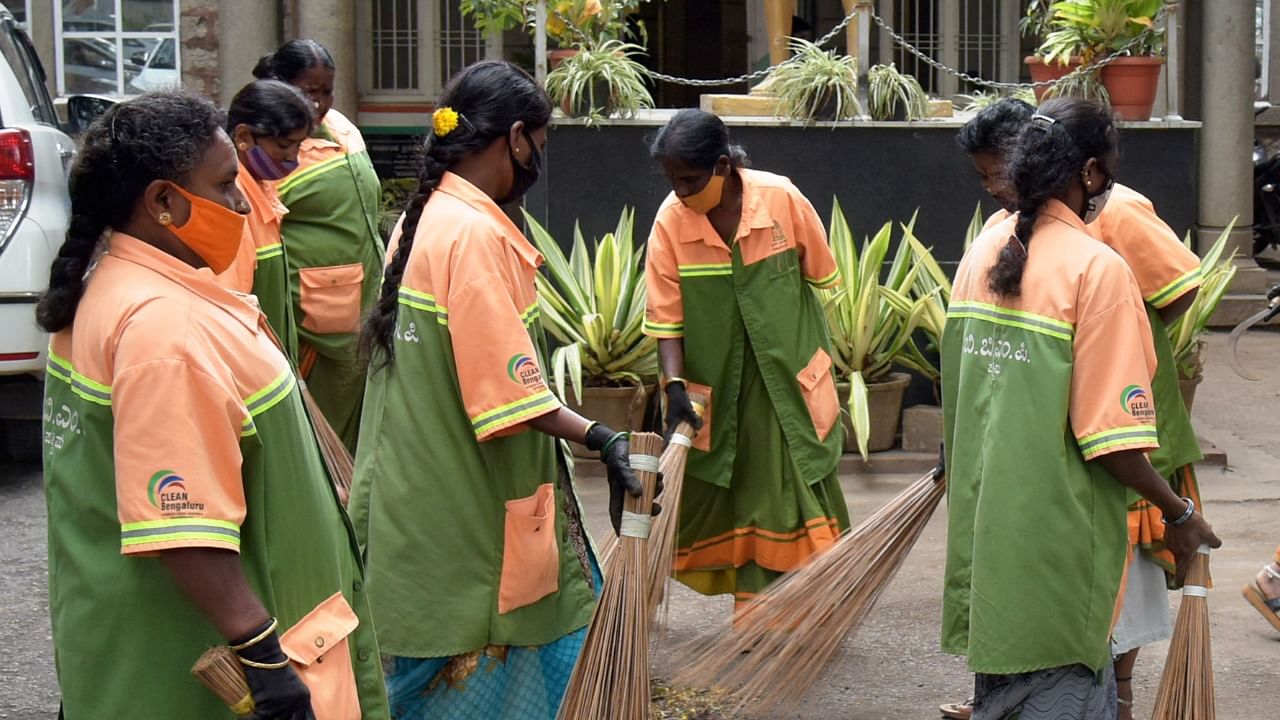
Frustrated with the delay in regularising waste management workers under the contract system, four months after the chief minister assured of addressing their demands, pourakarmikas across the state plan to convene in Bengaluru on November 6 to decide the next course of action.
Their disappointment is fueled by a Bruhat Bengaluru Mahanagara Palike notification to regularise only 3,673 workers, while there are about 16,000 pourakarmikas on the direct payment system.
"We were clear on our demands – that all workers under the Direct Payment System (DPS) be regularised and all drivers, loaders and unloaders, who were still under the contract system, be be brought under the DPS," explains Nirmala, president of the BBMP Pourakarmika Association.
Sulaiman (name changed), a pourakarmika under the DPS, saw hope and a bright future four months ago, following the protest, "After hearing that only 3,000 workers would be made permanent I was disheartened. They should regularise all of us instead of picking and choosing, otherwise it feels like discrimination," he says.
The demand for 'equal pay for equal work' was central to the strikes in July. Currently, workers under the contractual system get paid Rs 14,000 to Rs 15,000 per month while permanent workers earn between Rs 17,000 to Rs 28,890. "But we do everything that a permanent pourakarmika does, how is it fair," asks Ratnamma, a pourakarmika in Bengaluru.
The vast difference in the payment for workers are in violation of Article 14 of the Constitution. "Several high courts have also set precedence by holding that workers performing the same duties cannot be paid differently," explains Maitreyi Krishnan, an advocate.
Contract system
The announcement from the chief minister was well-received because it meant independence from the contractual system, which had come under severe criticism in the past.
The contract system had institutionalised fear and exploitation, explains Latha (name changed), a pourakarmika from Bengaluru. "In my ward, they had withheld our passbooks, we had to even file a case against the contractors. They regularly threatened to take away our jobs and abused us with most vile insults," she says.
The CM’s announcement meant job security and the creation of mechanisms that would allow for the registration of harassment complaints. "Now, we do not know if the CM’s word will be met," she adds.
The initial jubilance that followed the chief minister’s assurance, soon fizzled out, leaving workers with a familiar taste of disappointment and distrust in the government.
The government has a history of reneging on its word, particularly with regard to pourakarmikas. In 2017, for example, the state government conceded after massive protests to bring pourakarmikas under the DPS. "However, in contravention to the definition of a pourakarmika – they excluded drivers, loaders and unloaders, leaving them vulnerable to exploitation under the contract system," says Nirmala.